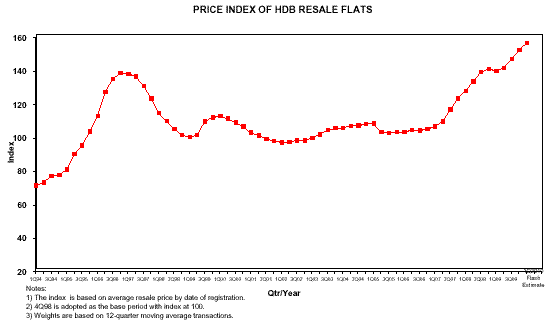After a through reading of the SDP Shadow Budget, I have expanded on my earlier thoughts.:
It contains numerous contradictions
This is best illustrated by the conflict between A14 and C11
A14 justifies the breakup of GIC and Temasek by explaining the logic against government intervention in economic planning:
“Co-opting successful entrepreneurs into state-mandated committees is counter-productive because, governed by the internal logic of the establishment, they become hidebound by the culture of conservatism, hierarchies, and ministerial edict and become reified(sic), unable to identify the trends and patterns of consumer behaviour.”
Yet, C11 audaciously goes on to state:
“The government will encourage the establishment of SMEs in the organic foods, environmentally-friendly and eco-friendly products, and ecotourism sectors. These sectors have been selected because they are growing in terms of market share and reflect lifestyle shifts in the nation.”
A prime example of ministerial edict justified via internal logic, no?
And then there is C31:
“The Foreign Worker Levy payable by employers will, instead of being returned to the Government, be divided equally between the employees on Work Permits and the employer.”
Effectively nullifying the existence of the Foreign Worker Levy. Coming straight after C30, which implements a Singaporeans First Policy. It is thus unclear if the SDP shadow budget will actually reduce immigration and foreign workers at all, depending on how strict this Singaporeans First Policy is.
Dramatically expands the role of government into the economy
While the document does expand civil liberties in the social arena, it shows a willingness to intrude into the free market. For example, there is C63, the creation of a minimum wage policy.
Following closely behind is C39, reducing university fees by 50% in public universities for Singaporeans and freezing them until 2015. Along similar lines is C49, freezing public transport fares at 2010 levels till 2015.
These two proposals are in effect price ceilings, which will in the end lead to massive shortages and underprovision of university places and public transport, unless the government steps in with massive subsidies.
And then there is C70:
“A Utilities Commission will be created to implement the return of electricity and water to the public sector. The Commission will determine, upon open and transparent consultation with the public, the utilities rate.”
Definitely a step back for good economics. It seems as though the previous lessons and rhetoric on government waste and inefficiency (exemplified by A14) was totally forgotten.
I am not a budget specialist, but it is quite likely that the spending increases (as per C17), coupled with the lack of similar rises in taxation, will lead to deficits, which will worsen the inflationary pressures in our economy.
All in all, there is a lot for small government conservatives to worry about.
An inherently political document
The SDP uses this budget to advance its own agenda, while pretending that this is in the greater interest. I was very interested to read the justifications behind the repeal of the Political Donations Act and the amendment of the Newspaper Presses and Printing Act.
C12:
“The government will also repeal the Political Donations Act in order to encourage local NGOs to flourish and regional and international NGOs to relocate to Singapore, thus opening up a new economic sector.”
C13:
“Likewise the Newspaper Presses and Printing Act will also be amended to encourage Singapore to become a centre for the international media industry which commands a large source of job creation.”
If you have not realised, these are rather contrived rationales to support their case. There are far better uses of government resources to promote growth than to repeal/amend legislation that have no guaranteed results and at best, just might lead to a little more economic growth. (I challenge anyone to find a developed country that has the media/NGOs form a large fraction of the economy relative to other sectors)
Don’t get me wrong. There are genuine reasons why we should reform the bills above.
But if the SDP wants to do so, then it should campaign transparently its rationales to the public. We do not need more lies or half truths.
What we need is transparency in government, and this does not set a good precedent.
Conclusion
My impression has turned for the worse after reading the entire 26 page document.While there are still good ideas, the entire proposal is not fully thought out and incomplete (e.g. there is a total lack of Revenue Estimates).
While this is in part understandable: it is not like the SDP had the entire Ministry of Finance to help them draft this budget, this should not diminish the criticism of this proposal.
For if we demand high standards of accountability from the PAP, we should ask for the same from the SDP, what more with its fervent cries for transparency and fairness in government. The release of such a contradictory budget laden with populist sounding measures (all while Mr Chee claims there are none) convinces me that the SDP is just a party of unprincipled hacks that is fundamentally like the PAP. It is unserious and plainly aimed at attaining power.
We deserve better. And we can do better.




